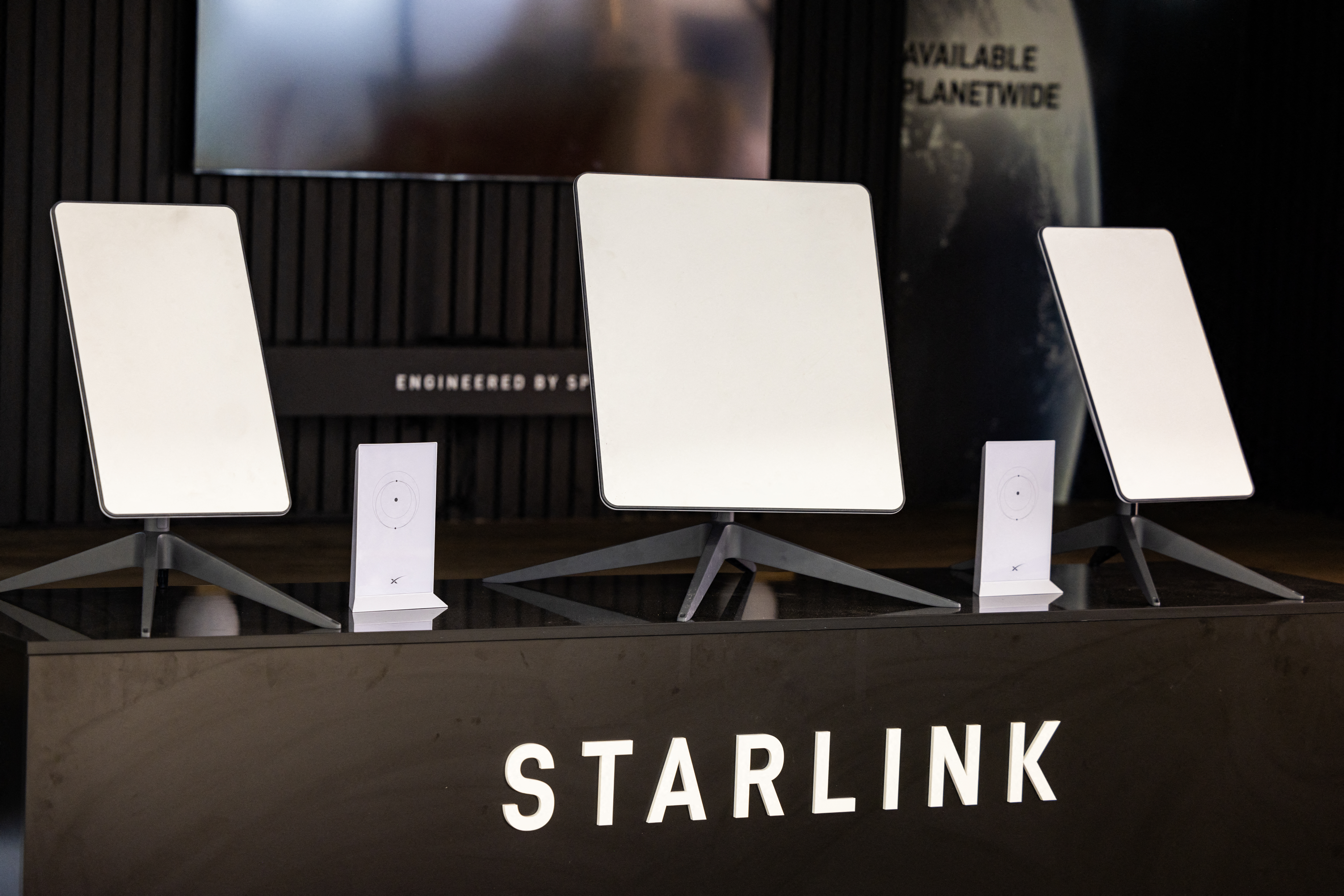Starlink speed has yet to match local telco services

Starlink satellite antennas are seen at the Internationale Funkausstellung (IFA), the international trade show for consumer electronics and home appliances, on August 31, 2023 during a preview at the fair grounds in Berlin. Starlink is a satellite internet provider operated by Elon Musk’s American aerospace company SpaceX. This year’s IFA edition will be open to the public from September 1 to 5, 2023. (Photo by Odd ANDERSEN / AFP)
While more Filipino users are testing Starlink’s services, the satellite-based connectivity company has yet to catch up with the download and upload speeds provided by the local fixed broadband operators who continue to ramp up their networks as well, according to a study by market insights firm Ookla.
In its latest Speedtest Intelligence report, Ookla noted that median download speed of Starlink in the second quarter was 48.14 megabits per second (Mbps), which was only nearly of the fixed broadband operators at 94.42 Mbps.
Starlink also registered an upload speed of 12.63 Mbps, which was markedly lower than its competitors who clocked in at 94.13 Mbps.
READ: Starlink now in PH
Ookla noted that the satellite provider has a higher latency when it comes to the delivery of internet services, which means a slower connection.
Latency refers to the amount of time for data to travel across the network. A shorter latency translates to faster internet speed.
In the case of Starlink, Ookla noted its latency during the period was 50 milliseconds (ms), or double its competitors.
Nevertheless, Ookla explained that satellite broadband providers like Starlink can help in filling the digital gap as it is challenging to build traditional telco infrastructures in remote areas.
“There has also been a significant increase in satellite-based connectivity to provide internet access in areas not covered by traditional terrestrial networks,” it explained.
READ: Starlink service in PH is now live
The number of Starlink Speedtest samples in the country grew by 228.5 percent during the second quarter compared to the previous year in the same period.
According to technology intelligence firm ABI Research, the Philippines is projected to be the biggest satellite broadband market in Southeast Asia with 909,000 subscriptions by 2028.
The country has been seeing several entries of foreign satellite players in the country after granting tech mogul Elon Musk’s Starlink Internet Services Philippines license to operate as an internet service provider in 2022.
California-based Astranis also aims to offer services in the country this year to 2 million Filipinos. The American technology company seeks to establish connectivity in over 5,000 locations in the country initially and it hopes to deploy more for wider coverage.
Intelsat, a US-based satellite and terrestrial network company, is working with the Department of Information and Communications Technology in establishing internet connection in rural areas.
Other players like Luxembourg-based connectivity solutions firm SES and local technology startup Quicksilver Satcom Ventures also previously expressed interest in providing connectivity services in the country.
